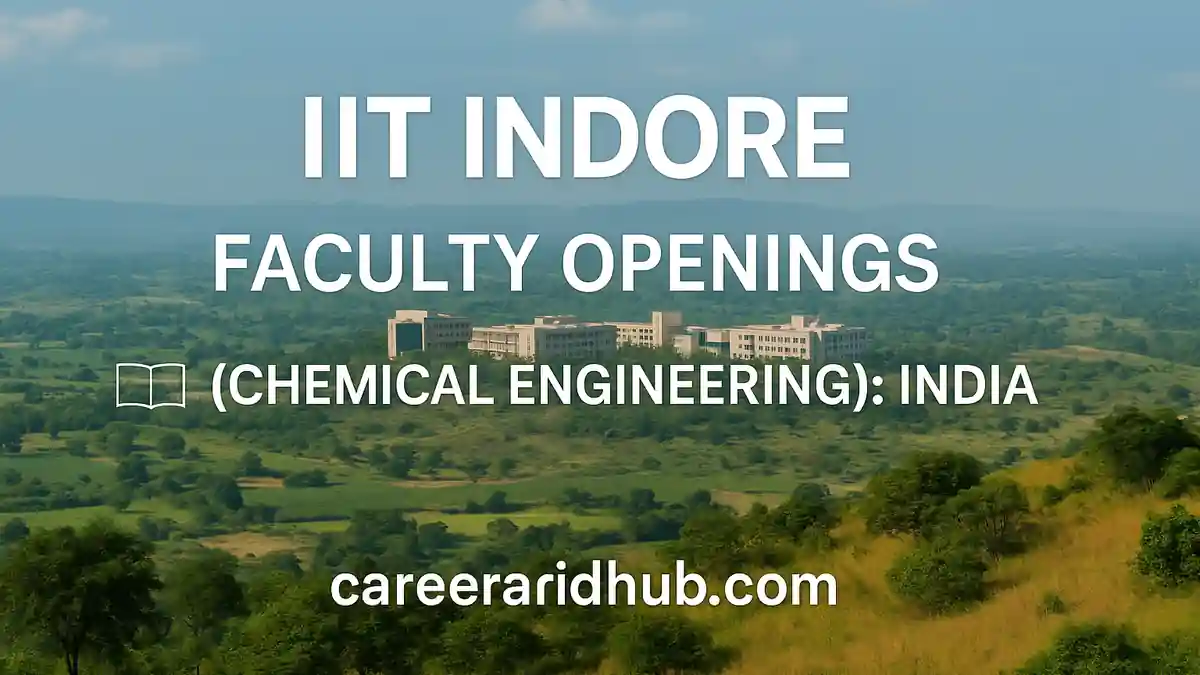Elevate Your Research Career in Canada
Canada remains globally recognized for its dedication to scientific advancement and environmental responsibility. The Postdoctoral Research Program (PRP), operated by Natural Resources Canada (NRCan), is a distinguished federal initiative aimed at integrating early-career PhD researchers into policy-aligned scientific roles.
This highly regarded program offers recent doctoral graduates the opportunity to collaborate with experienced scientists in modern federal research laboratories throughout Canada. The PRP is supported by several federal departments, including Natural Resources Canada, Agriculture and Agri-Food Canada, and Environment and Climate Change Canada.
Meta Description: Discover how Natural Resources Canada’s Postdoctoral Research Program supports emerging researchers in climate, energy, and environmental science.
The Postdoctoral Research Program by Natural Resources Canada provides early-career researchers a platform to drive innovation in environmental, energy, and climate research through high-impact federal projects.
Host Institutions and Scientific Scope
While Natural Resources Canada leads the initiative, the PRP is a cross-departmental effort that includes partnerships with:
Environment and Climate Change Canada
Agriculture and Agri-Food Canada
Canadian Food Inspection Agency
Candidates are appointed to specialized laboratories and research units working on critical scientific and technical challenges such as:
Renewable
energy development and energy efficiencyClimate change modeling and environmental resilience
Forest sustainability and geospatial technologies
Biodiversity protection and ecosystem conservation
Resource extraction, mining sustainability, and clean technology
This collaboration fosters a comprehensive and multidisciplinary research environment for postdoctoral fellows.
Eligibility Criteria
The PRP is open to highly qualified candidates who meet the following criteria:
Canadian citizens or permanent residents
Foreign nationals legally permitted to work in Canada
Applicants must:
Possess a PhD in a natural science discipline such as biology, chemistry, geoscience, physics, or environmental science
Have earned their doctoral degree within the last three years (reasonable exceptions apply for medical or parental leave)
Demonstrate a strong record of scholarly publications and scientific research contributions
Applications from individuals belonging to underrepresented groups in STEM are actively welcomed and encouraged.
Fields of Research
The program encompasses a broad range of natural science fields that contribute to Canada’s national research agenda, including:
Remote sensing and earth observation
Plant science, forestry, and landscape ecology
Atmospheric chemistry and environmental monitoring
Renewable energy technologies: geothermal, solar, wind
Risk mitigation for natural disasters
Carbon emissions reduction, carbon capture, and storage
Materials science and clean technology development
These research domains are designed to directly inform public policy, sustainability efforts, and innovation across federal agencies.
Application Process
Step 1: Browse Available Research Opportunities
Applicants should begin by visiting the official PRP portal to identify suitable research opportunities. Each posting includes key details such as the project theme, qualifications, and supervisory agency.
Step 2: Prepare Required Documentation
Prospective candidates must compile the following application materials:
A detailed and updated curriculum vitae (CV)
A tailored cover letter describing their research goals and alignment with program themes
Academic transcripts from graduate and doctoral studies
Names and contact details of 2–3 referees, preferably academic mentors or research supervisors
Step 3: Submit Through the Official Portal
Submissions are completed via the Government of Canada jobs website, where new PRP opportunities are listed throughout the year. The platform accepts applications on an ongoing basis, and recruitment is conducted in periodic cycles.
Funding and Benefits
Participants in the PRP are offered highly competitive employment packages that reflect Canadian federal compensation standards:
Annual salary typically ranges from CAD 68,000
to 78,000, depending on role and qualificationsHealth and dental insurance coverage is included
Paid vacation leave and recognition of statutory holidays
Access to training programs and career development workshops
In some cases, additional financial provisions such as relocation assistance or research travel funding may be available.
Work Environment and Career Development
Postdoctoral fellows work within a collaborative and mission-driven research setting. The program emphasizes:
Cross-agency cooperation on national and global science priorities
Production of evidence-based findings with real-world policy applications
Capacity building in areas such as scientific writing, data analysis, and interdepartmental research integration
Many alumni transition into full-time research scientist roles, policy advisory positions, or tenure-track academic appointments following completion of their fellowship.
Why Choose the PRP in Canada?
Enrolling in the PRP means becoming part of an elite network of researchers tackling urgent environmental, energy, and economic challenges. Participants benefit from:
Access to advanced labs and infrastructure for applied science
Stable government research funding and institutional backing
Strong
work-life balance and inclusive employment policiesOpportunities to work in regions with vibrant research communities and natural landscapes
Whether you’re passionate about decarbonization, food security, or climate innovation, the PRP empowers you to translate your research into measurable national outcomes.
Tips for a Strong Application
To enhance your application’s competitiveness:
Align your cover letter with the research focus of the position
Highlight publications, tools, or methods directly applicable to the project
Showcase previous collaborative research or involvement in interdisciplinary teams
Emphasize communication skills and potential policy relevance of your work
Your referees should be familiar with your most recent scholarly contributions and your capacity for independent research.
Conclusion and Next Steps
The Postdoctoral Research Program at Natural Resources Canada offers a transformative opportunity for emerging scientists to shape public policy, engage with high-impact research, and launch long-term careers in science and innovation.
By bridging research excellence with practical application, the PRP stands as a model for fostering innovation through government-led initiatives.
Note: Application cycles vary. Most new listings are published between October and March, with ongoing reviews throughout the year. For the next round, anticipate updates in February or March.
Program Overview
| Feature | Details |
|---|---|
| Program Name | Postdoctoral Research Program (PRP) |
| Host Country | Canada |
| Funded By | Natural Resources Canada (with partner agencies) |
| Duration | Typically 12–24 months |
| Study Mode | Full-time, on-site in government labs |
| Eligibility | Recent PhDs; Canadian or international researchers with work permit |
| Financial Support | Salary, benefits, relocation, training opportunities |
| Fields of Study | Climate, energy, ecology, remote sensing, geoscience, clean tech |
| Deadline | Rolling intake; next cycle updates expected Feb–Mar (we will update soon) |
| Official Website | Click Here |
Review & Update Timeline
Next Review Recommended: February (annually, ahead of spring cycle)
Suggested Update Frequency: Semi-annually (Fall and Spring)
Frequently Asked Questions (FAQs)
The Postdoctoral Research Program is a federal initiative offering early-career PhDs research positions in Canadian government laboratories.
Canadian citizens, permanent residents, and foreign nationals with valid work permits who hold recent PhDs in natural sciences can apply.
You must apply online through the Government of Canada jobs portal by submitting your CV, cover letter, transcripts, and references.
Postdoctoral researchers typically earn between CAD 68,000 and 78,000 annually, depending on the department and research area.
Research fields include climate science, clean energy, earth sciences, forestry, environmental chemistry, remote sensing, and materials technology.
Yes, international PhD holders with valid Canadian work authorization may apply and participate in the program.
Positions are posted on a rolling basis, but most openings appear between October and March each year.
Applicants need a CV, a tailored cover letter, academic transcripts, and 2–3 academic or professional references.
Some departments may provide relocation support, while benefits typically include insurance, vacation, and training opportunities.
Yes, many participants secure permanent research, policy, or academic roles in government or industry after completing the program.










